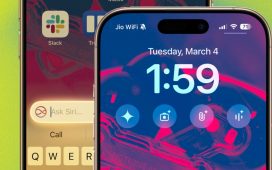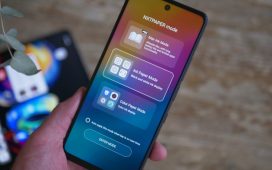The bungled smartphone emergency alert system should be tested again within the next two years, Whitehall officials told MPs yesterday.
The multi-million-pound system descended into farce when it was tried out in April, with reports of alarms sounding earlier than planned, while some mobile users received multiple tests, sometimes hours apart. Others failed to receive the warning at all.
There were also concerns that not enough thought was given to victims of domestic and sexual abuse – who often hide phones from their attackers – on the impact of having the loud, ten-second warnings sent to their devices.
Roger Hargreaves, the director of the Cabinet Office’s Cobra unit, which meets to discuss emergencies or severe disruption, said he expected another test within two years.
It would mean phone users across the nation would receive another test by the end of April 2025.
He told MPs on the Public Administration and Constitutional Affairs Committee: ‘It is international standard practice to do regular test messages.
‘I think there is a case for doing it every two years. But we haven’t got a ministerial decision on that.’
Mr Hargreaves said there was likely to be an appetite to let the ‘excitement and interest’ about the first test ‘bed in’, and then carry on with the nationwide testing at a later date.
He noted that some countries test their alert systems monthly, but said: ‘Every two years is what we would probably advise ministers, but we are yet to get a view on it.’
MPs were told the system would likely be used ‘sparingly’ once it is rolled out, for example in cases such as extreme weather events that required urgent attention.
He said some phone users might also be told to avoid a certain area in cases of emergency, with alerts sent to individual phones in a specific area.
Lord Harris, who publicly championed the emergency alert system for a decade, said it was important the public did not become fatigued with the frequency of messages.
He told the committee: ‘There’s clearly a concern that these message systems are overused and the public get fed up and don’t take notice. So you have got to have a reasonable threshold.
‘I don’t think it should be “oh my goodness, here’s today’s emergency alert”. That’s just going to breed contempt.’
The alarm was sent to millions of mobile phones at 3pm on Sunday, April 23.
But swathes of the population reported receiving it a minute early, while others unexpectedly saw the phones buzz between midnight and 8am, waking users from their slumbers.
A handful of those travelling between Wales and England that day also said they received one message each side of the border.
In April some Tory MPs including former minister Jacob Rees-Mogg said the alert was an example of ‘nanny-state interference’, but Mr Hargreaves said 2 to 3 per cent of phone users had deactivated the alert in advance of the test.











